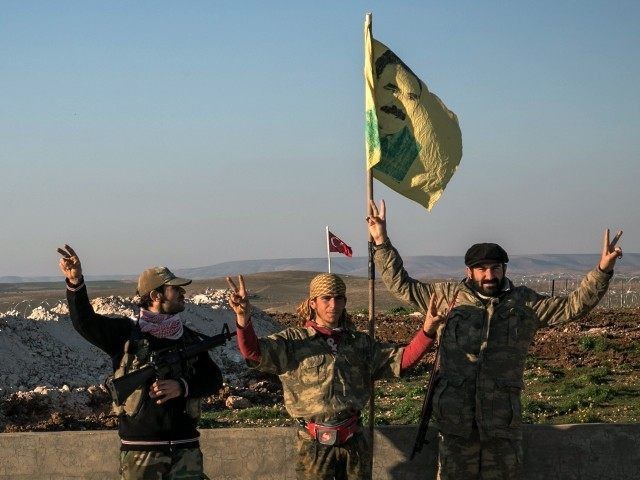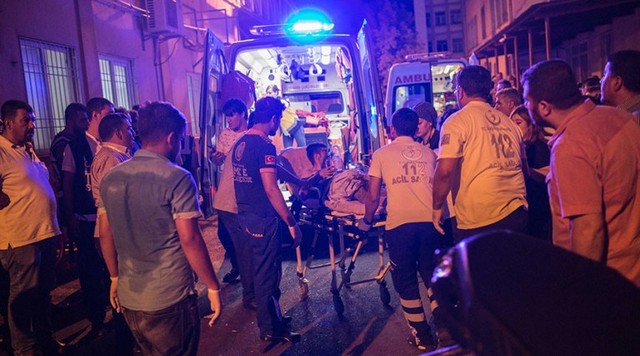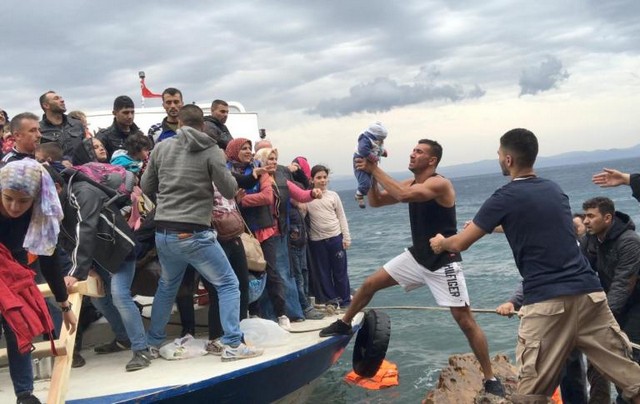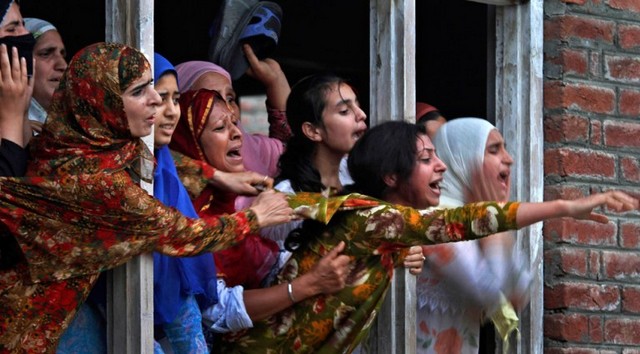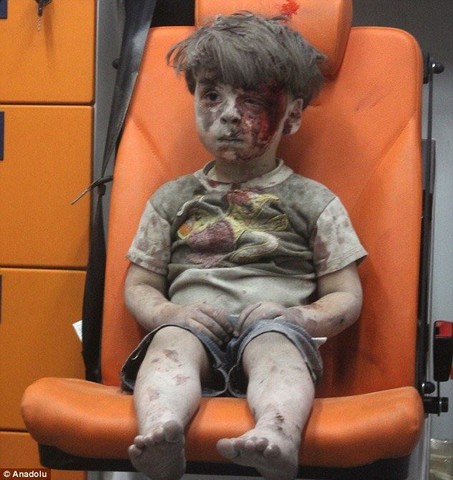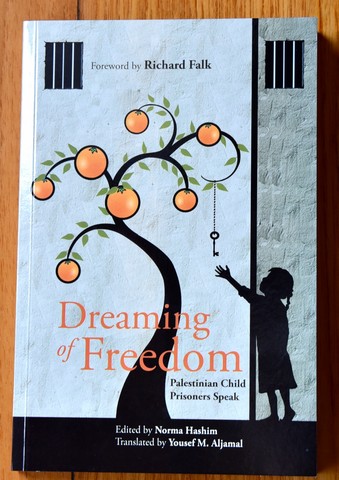By Antonio Tricarico
Financial speculation in food commodities has become one of the main drivers of food price volatility, with devastating impacts on small producers and the poor. Yet the disruptive influence of financial speculation on food markets is only a preview of future crises. International financial markets are now attempting to dominate many conventional markets as a long-term strategy to extract greater profits and accumulate capital. While governments have been discussing the issue in the context of the G20’s focus on food security,1 their responses have been insufficient and contradictory so far and do not begin to address speculation in other hard commodities, where prices are even more volatile and the impacts on energy-dependent countries are equally severe.
The systematic financial speculation on commodities (and its systemically influential increase in recent years) has been driven mainly by deregulation of derivative markets. Derivatives markets, which trade in futures contracts and options, among other financial instruments based on other assets, enable the price risks for an asset (wheat, oil, pork bellies) to be transferred from the producer to other parties, often speculators, through the sale of “derivative” financial instruments. Speculation has also soared as investment banks, hedge funds and other institutional investors have jumped into the derivative market, often introducing new financial instruments such as index funds and exchange-traded funds.
All of these trends have been accelerated by financial deregulation, which over the last decade, for the first time in history, has transformed commodities into financial assets. Until the beginning of the 2000’s, holding a ton of corn could not produce a revenue stream or rent, other then from sales based on market prices. Today, thanks to financial engineering, such financial schemes are not only possible, they are highly lucrative. The largely unregulated commodity derivatives markets have resulted in greater speculation on food commodities, which can cause high prices and shortages, particularly in poorer countries. Such “financial innovation” is part of a broader trend that is structurally transforming the global economy and natural resources management.
Contrary to common sense and what civil society often assumes, financial markets are penetrating deeper and deeper into the “real economy” of actual production. Speculative finance is increasingly influencing prices and thus productive output in agriculture and energy as well as natural resource commons that have historically functioned outside of markets. The result: speculative capital is becoming structurally intertwined with productive capital, including the commons as productive realms. This expansion of (finance) capital represents a new historic type of enclosure: investor-driven appropriations and control of many forests, fisheries, arable land and water resources historically managed as commons.
The 2007-2008 crash of financial markets and the global economy, coupled with investors’ need to diversify investments beyond traditional markets (including equity, bonds and real estate), has intensified the search for new ways to achieve high rates of return, cover heavy losses that some institutional investors experienced during the crisis, and absorb the massive liquidity of capital that exists globally. These needs have propelled the development and even the creation of new types of financial market risks. But in so doing, financial market operators are reformulating the fundamentals of the real economy where everyday production and consumption occur. A massive financial transformation is underway as financial entrepreneurs create new tradable asset classes out of existing commodities, which provide a physical source of value to support new structured financial instruments.
The new financial assets are being created from existing commodities. And where markets do not yet exist, natural resources are being converted into commodities so they can be traded. Indeed, new commodities and markets are being created from scratch to satisfy the demands by financial markets for new, high-return investments
A very good example of this kind of “Rumpelstiltskin capitalism” – the making of something valuable from nothing, like spinning straw into gold – is the carbon market. These markets trade the right to emit carbon, as authorized by state-issued permits of such rights. Carbon-trading rights are also generated by companies through the implementation of projects aimed to reduce emissions in the future and thus to offset real emissions that the same companies are generating today. A carbon credit or certificate is in itself a derivative contract, given that its value is based on the estimated future price of abating carbon emissions. Therefore holding or buying a carbon credit is in itself a bet about the future, something quite different from holding stock in a ton of corn. These rights to emit – or credits and certificates – are then resold on a secondary market, otherwise known as “emission trading.” Derivative financial products are built on the rights, credits and certificates, as in the case of other commodities. In this case, as with other commodities, speculative investors are simply trading financial risks associated with the carbon commodity – which itself is highly unstable and virtual.
HOW ARE FINANCIALIZATION AND NATURAL RESOURCES CONNECTED?
We live in a time of finance capitalism, where trading money, risk and associated products is more profitable than production itself, and often accumulates greater capital than trading goods and services. This has huge implications for where capital is invested and the everyday impact that capital markets have on people, as more and more aspects of everyday life – from home ownership to pensions to schooling – are mediated through financial markets (rather than conventional markets alone). This is what people mean when they talk about the “financialization” of the economy.
Financialization should be regarded as more than just a further stage of commodification. Financialization reduces all value that is exchanged (whether tangible, intangible, future or present promises, etc.) into either a financial instrument or a derivative of a financial instrument. Financialization seeks to reduce any work, product or service to an exchangeable financial instrument like currency, and thus make it easier for people to trade (and profit from) these financial instruments. A mortgage loan, for example, is a financial instrument that lets an employee trade a promise of future wages for ownership of a home. Financialization aims to transform labor, goods and services into tradable financial products as we know it from currency trade.
With financialization increasingly penetrating into the real economy, financial markets, financial institutions and financial elites are gaining greater influence over basic economic policies and economic outcomes. Financialization transforms the functioning of economic systems at both the macro and micro levels of the economy in three distinct ways: 1) It changes the structure and operation of financial markets; 2) It changes the behavior of non-financial corporations (whose profits are more and more generated through financial markets than through actual production); and 3) It changes the priorities of economic policy.
Financialization is now reaching into all commodity markets and transforming their basic functioning. Just as the first wave of financialization focused on privatizing public services such as pensions, health care, education and housing systems (in the quest for better returns on investment), so the new wave of financialization seeks to commodify natural resources. In many instances, this leads to enclosures of the commons, which in turn affects both resourceexploitation as well as resource conservation projects.
At the same time, growing global competition for the control and management of natural resources worldwide is intensifying pressures on national economies to exploit natural resources, resulting in what Michael T. Klare calls “resource wars” (Klare 2002). This is not simply a matter of rapid industrialization and emerging economies fueling greater global consumption and competition for limited resources. Resource wars are symptoms of new geopolitical and geoeconomic dynamics. The control of natural resources flows is increasingly seen as a key strategic tool for directing futures markets, political relations and economic supremacy.2
This trend is quite evident in recent large-scale land acquisitions at an international level by governments and the private sector. Their aim often goes beyond just securing future crop production for their own populations; they want to secure long-term, highly profitable positions in foreign markets to enable them to acquire and process natural resources as well as diversify their investments.3 In this context, advanced economies, particularly those reeling from the economic crisis, want to expand capital markets in other countries in order to establish a new private financial infrastructure that can generate enough financial resources to develop these new infrastructure investments. Financial markets awash in liquidity are desperate for such new investment vehicles: At the end of 2010, global capital markets were trading more than $200 trillion, which is almost four times more than the world’s GDP, according to the McKinsey Global Institute (McKinsey, 2011).
The emerging “turbo-capitalism” driven by financialization seeks to address two pressing problems now facing investors: how to invest the massive amounts of private wealth and liquidity present today in capital markets, and at the same time how to create new financial instruments that will generate additional revenues for the financial industry.
Developed markets currently account for $30 trillion of the estimated total $43 trillion of global equity market capitalization, according to a recent estimate by Timothy Moe, chief Asia-Pacific strategist at Goldman Sachs. Over the next 20 years, global market capitalization could expand to some $145 trillion, he predicted.4 Looking only at private wealth not channelled through institutional investors, private equity funds managed $2.5 trillion at the end of 2008 (a 15 percent increase compared to 2007, despite the financial turmoil). International Financial Services London forecasts that funds under management will increase to over $3.5 trillion dollars by 2015, starting from less than $1 trillion in 2003.5 More and more private equity funds will focus on emerging economies. Global hedge-fund assets surpassed the $2 trillion mark for the first time ever, Hedge Fund Research Inc. said in April 2011, marking an impressive industry rebound from market losses and customer flight during the financial crisis.6
This new stage of financialization will provide new economic and legal leverage for the further commodification of nature and the commons in general. More and more natural resources will be extracted and commercialized, unleashing a new massive attack on the global and local environment and the common wealth.
Capital markets regard this approach as a vital long-term strategy to secure and lock in a new structure of control over natural resources that assures attractive profits. But this finance-driven structure will also dramatically reduce the ability of communities to reclaim their shared wealth and assert their collective, locally responsive management. This systemic goal of “financial enclosure” of the commons, when coupled with existing trade and investment agreements,7 could produce a long lasting, legally durable enclosure that would seriously diminish (policy) space for any political player and for social movements – farmers, Transition Towns, Occupy Wall Street, and others. Most importantly, it threatens to extinguish the possibility of people reproducing their livelihoods independent of the overwhelming influence of financial markets.
COMMODITY SPECULATION, INFRASTRUCTURE FINANCING AND THE INVENTION OF NEW MARKETS
FOOD, LAND AND AGRICULTURE
After the first food crisis, financial speculators such as hedge funds managers acquired strong positions in markets for physical food commodities, most importantly rice, corn and wheat. In 2010, hedge funds dominated 24 percent of the maize market, enjoying the commodity’s 34 percent price rally. Hedge funds have also increased their control of the soya bean market by 19 percent, up from 13 percent in 2009. These infusions of finance capital have affected the customary functioning of these markets by enabling large players to engage in market abuses and manipulations that make food prices more volatile. Worse, major trading companies in physical markets, such as Cargill, ADM, BUNGE and Glencore, which already play monopoly roles in several cases, are becoming more and more financialized. This means that they generate most of their profits through financial activities instead of through production for physical commodity markets.
Hedge funds, private equity funds and other investors play a central role in large-scale land acquisition, through international speculative investments. This explains why land in most cases is not put immediately into production. Instead, it is used as a vehicle to hedge against inflation or other investments in the same countries; as a way to enter those countries’ markets or as simple short-term speculation in land as a financial asset. New investments in agriculture fostered today by international financial institutions must also be seen as investments in the future financialization of the economy. They aim at deepening financial markets in developing countries (or even building them, where they do not currently exist) by making small farmers and consumers more dependent on debt and retail financial markets. For example, financial institutions wish to encourage farmers to cope with food price volatility by financially hedging their risks, or by buying food commodity futures, weather derivatives and the like.
OIL, ELECTRICITY AND RENEWABLE ENERGY
Ever since oil became a highly financialized commodity in the late Eighties, the price of oil has structurally influenced most economic processes in fossil fuel-addicted societies. The volatility of the price of oil is thereby transferred to other commodities, including food, with severe impacts on other economic sectors and consumers. This process occurs not only through the workings of the “real economy” (as oil prices are incorporated into retail prices), but also through the operations of index funds and other pools of speculative investments.
It is important to remember that major energy companies, such as General Electric and energy trading companies such as Enron, have been highly “financialized” since the Nineties. Their involvement in financial markets and high-risk speculative strategies have led to bankruptcy, as in the case of Enron’s infamous speculation (and price manipulations) in the price of electricity. Similarly, today’s major energy traders are investment banks and hedge funds – namely JP Morgan, Goldman Sachs and the RAB Energy hedge fund – that control oil productions and stocks directly or indirectly through participation into energy companies, energy service companies and traders (stocks, options and other financial instruments).
Because of this extreme financialization, any policy strategies to inaugurate a “Green New Deal” that focuses on trying to shift patterns in energy consumption and production will not succeed if it does not contain at its core highly financialized features. This risk should not be underestimated. For example, private equity funds in India, both domestic and foreign, have played a key role in listing renewable companies on the stock market through IPOs (initial public offerings, in which stock is first sold to the public). The fact that these offers became significantly over-subscribed increased the value of the companies to the benefit of short-term speculators. Similarly, several exchange-traded funds have stakes in green technology companies, which has helped to raise their profiles among short-term, speculative investors. The financialization of green technologies means that decisions about future energy developments and projects are increasingly directed by short-sighted, profit-maximizing financial speculators biased toward resource extraction.
METALS AND OTHER HARD COMMODITIES
As for other hard commodities – coal, metals and non-metals – mining has already seen a strong influx of speculative capital over the last decade. Hedge funds have been playing a major role in financing mining projects and companies, including coal. Today many of the most significant mining multinationals systemically use derivative-based trading. The recent scam of transfer mispricing involving Glencore and its Mopani copper mine in Zambia8 is quite telling: the company used option derivatives to lock in copper sales to a Zug-based subsidiary – Zug is a well known tax haven within Switzerland – at below market prices and then the subsidiary was selling at market prices.
It is also telling that major investment banks like BNP Paribas are developing “structured commodity finance” as a new field of operation. This novel approach uses the full panoply of financial engineering based on securitization and derivatives to finance large-scale resource-extraction projects and companies. But unlike traditional project financing schemes that simply securitize the expected cash flows, structured commodity finance aims to securitize the expected future physical output of the project or company by issuing securities that are then tradable on financial markets. Such financial instruments would necessarily lead a variety of investors to intensify pressures on resource extraction, disempowering communities who wish to have some say in how their natural resources are managed.
WATER AND INFRASTRUCTURE
In July 2011 the chief economist of Citigroup, Willem Buiter, stated in one of the company’s regular thematic research briefings: “I expect to see a globally integrated market for fresh water within 25 to 30 years. Once the spot markets for water are integrated, futures markets and other derivative water-based financial instruments … will follow. There will be different grades and types of fresh water, just the way we have light sweet and heavy sour crude oil today. Water as an asset class will, in my view, become eventually the single most important physical-commodity based asset class, dwarfing oil, copper, agricultural commodities and precious metals.”9 This vision goes far beyond the current privatization of water services and utilities; it would require a significant increase in the production of fresh water (desalinization, purification) as well as the storage, shipping and transportation of water through a network of new dams and large-scale canal systems interconnecting different water basins. In short, water itself would become a financial asset, so that holding a physical quantity of water would generate a financial rent. (Ecological considerations of the flows and location of water would be considered secondary or irrelevant.)
Building new water supply infrastructure would have its own powerful appeal to financial markets because it would require a massive mobilization of capital to build it – once again helping sop up the huge supplies of capital on global markets searching for profitable investments. Here again, a highly financialized approach will be followed in building water infrastructure, as today is happening with private equity infrastructure funds.
Specific attention should be paid to the toll that financialization has taken on water companies. The much-touted public-private partnerships have been significant failures, yet the many privatized water companies – i.e., Obras Sanitarias de la Nacion in Argentina, water supplies in Metro Manila in the Philippines, water utilities in Dar es Salaam in Tanzania – are short of financing and not producing profits. But it is becoming harder and harder to reclaim these companies to serve the public good, and eventually convert their capital base into publicly held or commons-based assets, because financial markets have promoted sophisticated bond issuances that have produced crushing indebtedness.
CARBON, FOREST AND NEW MARKETS COMMODIFYING NATURE
Carbon markets deserve specific attention because they can be seen as a deliberate experiment to try to build a new commodity, from whose trading financial assets and a financial market can then emerge. Today carbon markets are unable to function well primarily because of the virtuality of the asset that is being traded as well as the absence of reliable mechanisms for pricing carbon. These new markets are a clear example of how a new commodity could be created on the basis of market-based environmental and financial regulations: a commodity that itself is a derivative – a bet on avoiding projected carbon emissions against a disputable baseline.
With the inclusion of REDD credits into carbon markets,10 forests too will be financialized in the name of the fight against climate change.11 This could well hurt people’s livelihoods, particularly those of indigenous people living in forest areas. Similarly today there are proposals in the UK and US for establishing markets for trading species, habitats and ecosystems.12 As in the case of carbon and forests, this would require national – and where possible, international – legislation to create new types of commodities, e.g., commitments to establish a new preserved habitat in the future, to plant trees in the future, or to protect some species, which could then be traded within a cap (a defined limit on the resource established by political institutions), and thus become a financial asset. This would lead to what some scholars and activists have called the final financial project, “Nature Inc.”13
PREVENTING FUTURE ENCLOSURE OF THE COMMONS
Today we are living a paradox where after the crisis, financial markets are reinventing themselves and are even growing further despite some limited attempts to regulate them. At the same time they are displacing public finance and acquiring a larger share over the management and control of natural resources and strategic physical assets. For financial investors and speculators, controlling natural resources offers significant competitive advantages – information asymmetries, arbitrage possibilities, and hedging by pitting one sector against another e.g., energy users vs. food consumers, regardless of the environmental, social and economic implications.
Financial market managers need to diversify the assets they build upon for security reasons and natural resources offer a very safe option if their management is framed under a market-based approach that from the outset is designed to create new financial assets. However, one thing is clear: the further commodification of the commons would generate new liquidity that would directly be invested in financial markets, thus creating new bubbles and crises. Therefore, the financial restructuring of our economies will only worsen the features of our current over-financialized economy, and make exit strategies out of finance capitalism ever harder.
The financial enclosure of the commons has important implications for civil society struggles and organizing. First, the pressures to extract and commodify natural and social resources will further threaten the livelihoods of local communities that rely on them for their own sustainable and democratic development. However, to date, communities on the ground are largely oblivious of the new financialization scenarios and the new mechanisms aimed at boosting private profits by shifting risks to governments and citizens. Therefore, there is an urgent need to research and explain in plain words what is new in this process of financialization of the commons and how it goes far beyond commodification. Financialization is actually a new paradigm for securing additional leverage for dispossession. We need to expose the key drivers and actors, and open more political space for struggles on the ground so that different constituencies can co-develop a new analytic framework and political narrative that will advance a shared agenda.
Financialization of natural resources will not just affect “developing” countries; it will also be visible in advanced economies and the European Union in particular, where more and more large infrastructure and extractive projects will be pursued, provoking struggles and resistance on the ground. This would allow activists to establish new links of solidarity among affected communities, and in particular between advanced and emerging economies, helping to create renewed forms of international solidarity.
Second, we need to better understand the critical role that international institutions and major decision-making forums, such as the G20 and international financial institutions (IFIs), will play in promoting financialization and infrastructure-building in the name of “development.” Key governments, IFIs and influential forums such as the G20 are poised to build on previous work carried out on financial regulation and investment agreements. This would entail “advice” by influential governments and institutions to deregulate subsectors of the financial system, such as public pension systems, so that public and private actors could begin to invest in risky long-term operations and/or heavily structured financial products.
Third, civil society should open up new avenues of policy that go well beyond market-based mechanisms and public finance for existing fiscal and investment mechanisms. By focusing on alternative approaches to public finance, and by reclaiming and defending the commons beyond market and state, civil society could slow the expansion of financial markets.
Finally, financialization of emerging and developing economies will necessarily have inevitable and severe impacts on development processes. It will have serious macroeconomic and macrofinancial implications that are not yet well understood, even by governments. A broader international civil society discussion questioning both micro and macro impacts of this trend through a sustained narrative could open up new political space for democratizing and reclaiming development processes. In particular, discussions should be focused at the local level by asking a number of key questions: What projects and infrastructure are needed by communities? For whom? For what purposes? What forms of financing are needed in order to mobilize domestic resources for development of self-reliant communities and promote existing and new alternative projects and processes?
While the impending new wave of financialization is a serious threat, it also opens new opportunities to bridge civil society struggles at both the micro/community level and macro/national and international levels. One can imagine a new and unifying global campaign framework that would evolve from the “our world is not for sale” approach that has animated previous struggles against the global free trade and investment agenda.
What will happen in the very next years will be crucial. The financial industry will seek to build the consensus and legal and physical infrastructure to achieve a finance-driven enclosure of the commons. To make all of this possible, states will be asked by corporate interests to enact new legislation and authorize new financial infrastructures through ad hoc regulations. In part, this is already happening. It is therefore urgent that civil society movements understand the financial industry’s ambitions and act to stop them before it is too late.
REFERENCES
Klare, Michael T. 2001. Resource Wars: The New Landscape of Global Conflict. New York, NY. Metropolitan Books.
McKinsey Global Institute. 2011. “Mapping Global Capital Markets, available at:http://www.mckinsey.com/Insights/MGI/Research/Financial_Markets/Mapping_….
1.The Group of 20 is the self-proclaimed club of the 20 strongest economic nations, which collectively produce up to 85 percent of the worlds global GNP. These nations will decisively determine economic and political developments in the decades to come.
2.See essays by Lili Fuhr and Liz Alden Wily.
3.See the essay by Liz Alden Wily
4.Udayan Gupta. “The New Urgency of Emerging Markets,” Institutional Investor (June 16, 2011), available at http://www.institutionalinvestor.com/Popups/PrintArticle.aspx?ArticleID =2848080.
5.IFSL Research, Private Equity, August 2009. http://www.thecityuk.com/assets/Uploads/Private-Equity-2009.pdf
6.http://online.wsj.com/article/SB10001424052748703922504576272683369646822.html
7.See the essay by Beatriz Busaniche on intellectual property rights and trade policy.
8.A detailed report about the dubious dealings of the Swiss company can be read here: http://www.zambianwatchdog.com/2011/05/04/detailed-report-on-glencore-mopani-mine-dubious-deals-in-zambia
9.Tracy Alloway, “Willem Buiter Thinks Water Will Be Bigger Than Oil,” Financial Times, July 21, 2001.
10.REDD (Reducing Emissions from Deforestation and Degradation) is a policy model that seeks to financialize the capacity of forests to serve as a carbon sink in the global metabolic cycle. The carbon that forests absorb is being given a monetary value, which can then be used to give different weightings to various economic decisions and to facilitate market trading of carbon credits. In this way REDD will advance the process of finanicalization.
11.Editors’ note: These ramifications of REDD are not considered by Shrikrishna Upadhyay’s essay.
12.See Joshua Bishop, “The Economics of Ecosystems and Biodiversity in Business and Enterprise” (Earthscan) at http://www.teebweb.org
13.See Andreas Weber’s essay.
Antonio Tricarico (Italy) is an engineer, campaigner, analyst and editor. He works for Re: Common, formerly the Campaign to Reform the World Bank (CRBM), in Rome, on international financial institutions, financial markets regulation and financial glob- alization related issues. He has co-authored several publications on IFI-related issues, the most recent being, “La Banca dei Ricchi,” and has been correspondent for the Italian newspaper Il Manifesto at several international summits.
First published in Wealthofthecommons.org
22 August 2016



